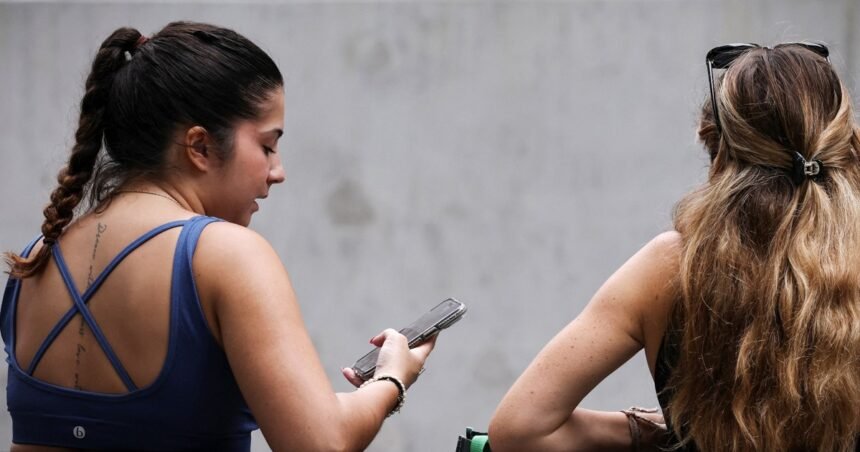SYDNEY, Australia – The Australian government will legislate to ban children under 16 from using social media, Prime Minister Anthony Albanese said on Thursday, in what he said was a world-leading package of measures that could become a reality by the end of next year. law.
Australia is trialling an age verification system to help block children from accessing social media platforms, part of a series of measures that include some of the strictest controls ever implemented by any country.
“Social media is harming our children and I am calling for this to stop,” Albanese said at a news conference.
Albanese cited the risks to children’s physical and mental health caused by excessive use of social media, especially the risks posed to girls by harmful body image depictions and misogynistic content targeting boys.
“If you’re a 14-year-old kid and you’re getting these things as you’re going through life changes and maturing, that can be a very difficult time, and what we do is listen and then take action,” he said.
Many countries have vowed to pass legislation to restrict children’s use of social media, although Australia’s policy is one of the strictest.
So far, no jurisdiction has attempted to enforce social media age restrictions using age verification methods such as biometrics or government identification, with two methods currently being trialled.
Australia’s other world-first proposals include a maximum age limit set by any country, an exemption from parental consent and no exemption for existing accounts.
Mr Albanese said the legislation would be introduced in Australia’s parliament this year and take effect 12 months after it is approved by lawmakers.
The opposition Liberal Party expressed support for the ban.
“The onus is on social media platforms to demonstrate that they are taking reasonable steps to block access,” Albanese said. “The onus does not fall on parents or young people.”
“What we are announcing here and what we are going to legislate will truly be world-leading,” Communications Minister Michel Rowland said.
Affected platforms include Meta Platforms’ Instagram and Facebook, as well as ByteDance’s TikTok and Elon Musk’s X, Rowland said.
TikTok declined to comment, while Meta, Alphabet and X did not respond to requests for comment.
The Digital Industry Group, a representative body whose members include Meta, TikTok, X and Alphabet’s Google, said the measure could encourage young people to explore darker, unregulated parts of the internet while cutting off their access to supporting networks.
“Keeping young people safe online is a top priority… but the proposed ban on youth access to digital platforms is a 20th-century response to 21st-century challenges,” DIGI managing director Sunita Bose said.
She added: “Rather than blocking access through bans, we need a balanced approach to creating age-appropriate spaces, building digital literacy and protecting young people from harm online.”
Last year, France proposed a ban on social media for under-15s, although users could avoid the ban with parental consent.
For decades, the United States has required technology companies to obtain parental consent before accessing the data of children under 13, leading most social media platforms to ban children under that age from accessing their services.

